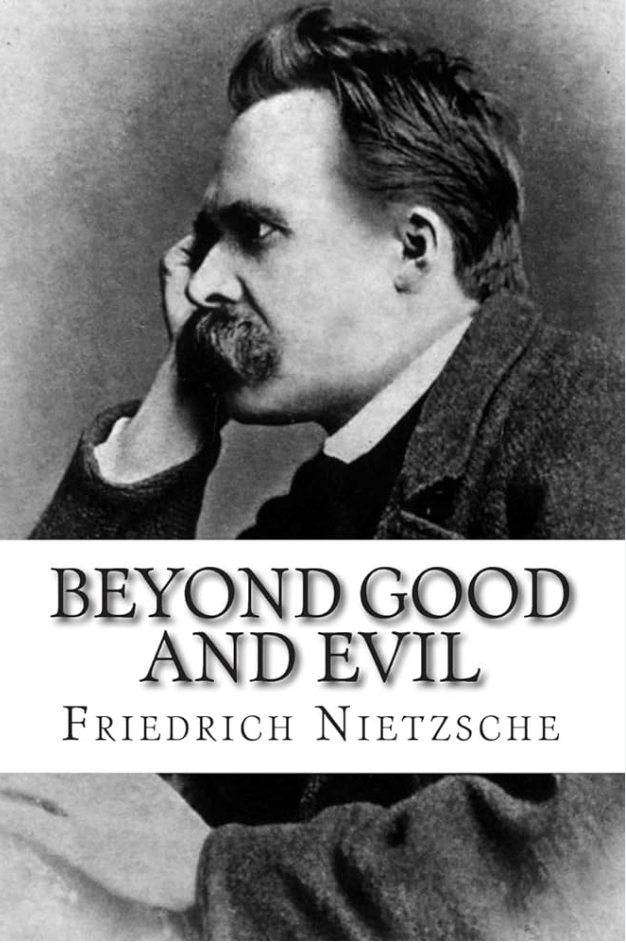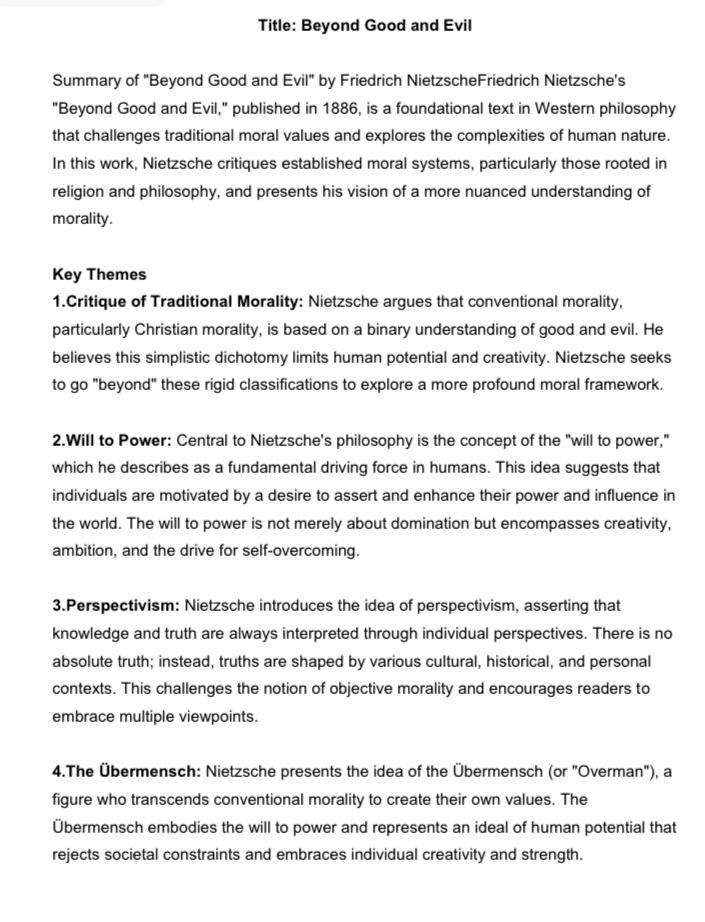Beyond Good And Evil by frederick Nietzche
Note Description
"Beyond Good and Evil" by Friedrich Nietzsche critiques traditional morality, particularly that rooted in Christianity, arguing for a more nuanced understanding of ethics. Nietzsche introduces key concepts such as the "will to power," which he sees as a fundamental human drive, and "perspectivism," suggesting that knowledge and truth are shaped by individual perspectives. He contrasts "master morality," characterized by strength and creativity, with "slave morality," which he views as reactive and life-denying. Nietzsche also presents the idea of the Übermensch, an ideal individual who creates their own values. Overall, the work challenges readers to reconsider established moral beliefs and embrace a more dynamic, individualistic approach to ethics.
...
Notes information
| Seller Price | GHC 9 |
| Added | 06 Sep, 2024 |
| University | KNUST |
| Course | Book Summary |


